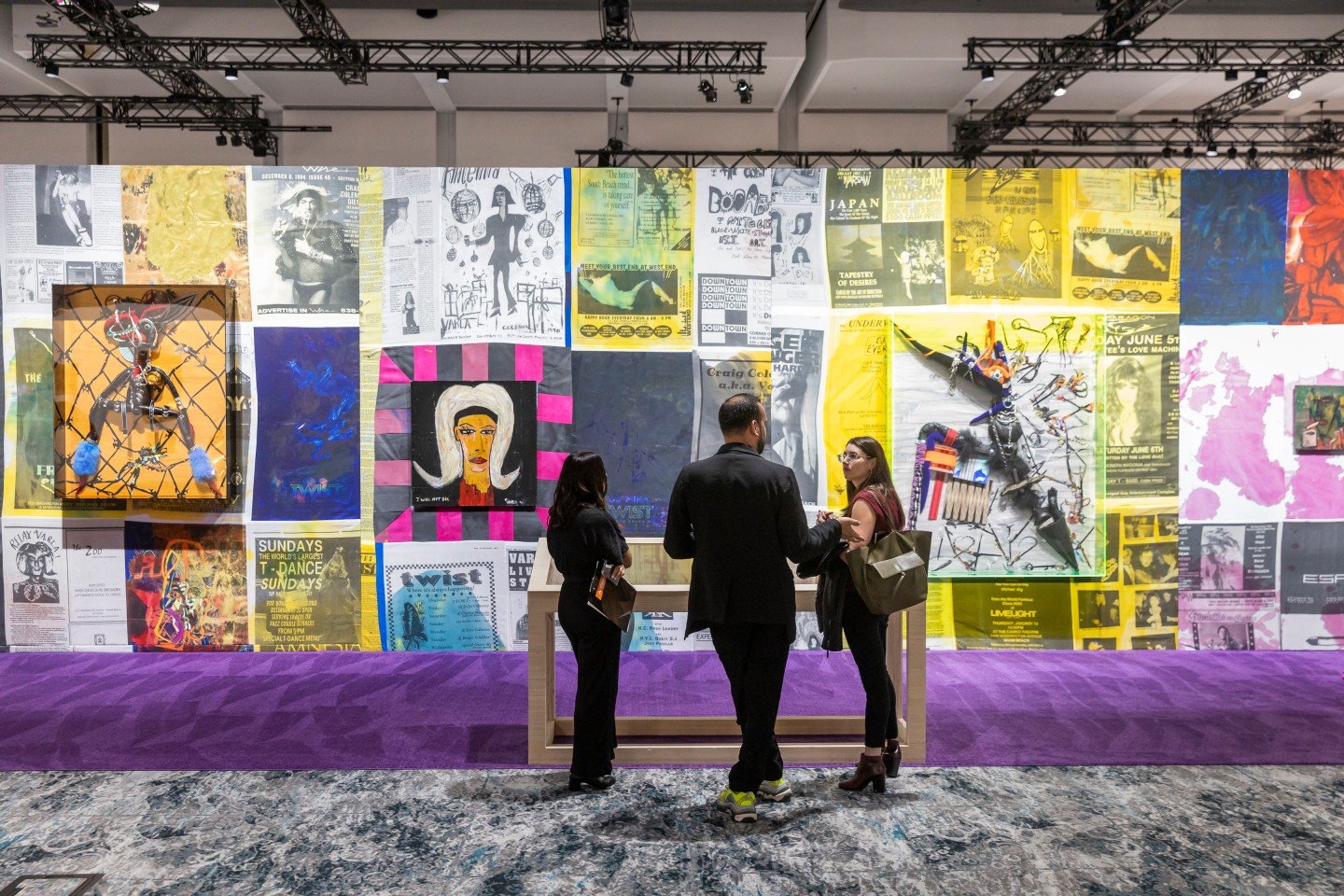
Dealers from galleries in South Africa found their plans to travel to the last big art event of the year botched amid a sudden travel ban as fear spreads over the new Covid-19 variant known as Omicron. Art Basel Miami Beach is set to open tomorrow with safety regulations in place, including face masks and proof of a vaccination, but many dealers from Africa, where the variant was first detected, now won’t be present.
“I was in New York visiting family, and read a short headline about the Omicron variant and went to sleep. I woke up the next day and all hell had broken loose,” said Joost Bosland, a partner at the South Africa gallery Stevenson.
Governments acted quickly to try to curb the new variant, which was first identified by scientists in South Africa. The virus, which had already spread to several nations by the time it was detected and named by the World Health Organization, led several Western nations, including the U.S., to issue sudden blanket travel bans on South Africa and other African countries. Over the weekend in Amsterdam, passengers from two planes from South Africa were held for more than 18 hours while waiting for negative test results in order to be released.
President Biden told press that the variant was a “cause for concern, not a cause for panic.” But the abrupt changes to travel rules wreaked havoc on dealers from South Africa. Liza Essers, owner and director of Goodman Gallery, based in Johannesburg and Cape Town, had to cancel her plans to travel to Art Basel Miami Beach this week. She will miss the pop-up exhibition that the gallery organized in the Design District of new bronze sculptures by South African artist William Kentridge, in addition to the fair.
William Kentridge’s exhibition “Glyphs” in the Design District. Courtesy Goodman Gallery. Photo: Oriol Tarridas.
“This is a new normal, where travel disruption remains an ongoing issue, affecting those in the Global South predominantly,” said Goodman director Jo Stella-Sawicka.
Particularly for galleries outside of the major global art hubs, art fairs provide crucial settings for face-to-face encounters with clients, and an opportunity to show a more diverse range of artists. At a breakfast organized by Goodman Gallery’s new platform for the Global South art scene, South South, colleagues met to discuss the ongoing impacts of travel restrictions on the region.
Two of Bosland’s Johannesburg-based business partners, David Brodie and Lerato Bereng, had already boarded their plane to head to Miami for Art Basel when Bereng received a message from a friend with a connection in government who gave an early warning about the coming U.S. ban on South African travelers.
“They did not know what the situation would by the time the plane landed, so they had to make the decision to deboard,” said Bosland, who quickly rearranged his own plans to head to Miami in their place. “Plus, you do not really want to be that gallery with two people from a country everyone is suddenly scared of—I remember those horrible xenophobic responses some had to Asian galleries over a year and a half ago.”
The gallery is showing a solo presentation of new work by Norwegian artist Frida Orupabo, including six of her large-scale figurative collages that often depict deconstructed bodies and a video work. Orupabo worked for many years as a social worker until she was spotted by artist Arthur Jafa on Instagram, has work on view in the 34th São Paulo Biennial, which is on view for another week in Brazil.
A view of Frida Orupabo’s solo presentation at Stevenson’s booth at Art Basel Miami Beach. Courtesy Stevenson.
The dealers from Southern Guild, who are exhibiting at Design Miami, arrived just days before the travel ban took effect, but two of their exhibiting artists, Andile Dyalvane and Zizipho Poswa, were not so lucky. “Our return to Design Miami after not being able to attend last year, feels very momentous,” said Trevyn McGowan, its co-founder. “To think that our participation in the fair was almost imperilled (and averted by a mere few days) really brings home to us how much is at stake when governments exercise their reflex reaction by shutting borders.”
Even galleries not showing in Miami still often have business to do there during the fair. Linda Pyke, director of THK Gallery, Cape Town had to scrap plans to travel to Florida with clients.
“We have just been in Europe at fairs in London, Paris, and Cologne, and realized everyone is becoming more cautious, and there fewer international attendees,” said Pyke. “While we understand a cautious approach, we remain hopeful a reasonable balance can be found.”
Jonathan Garnham, owner of Cape Town’s Blank Projects, also found his travel plans to Florida thrown into disarray. “These restrictions go against W.H.O. guidelines and reflect the arrogant neocolonial attitudes of the Western powers,” he said.
“This latest round of travel bans is akin to punishing South Africa for its advanced genomic sequencing and the ability to detect new variants quicker,” continued Garnham. “We are angry, we are tired.”